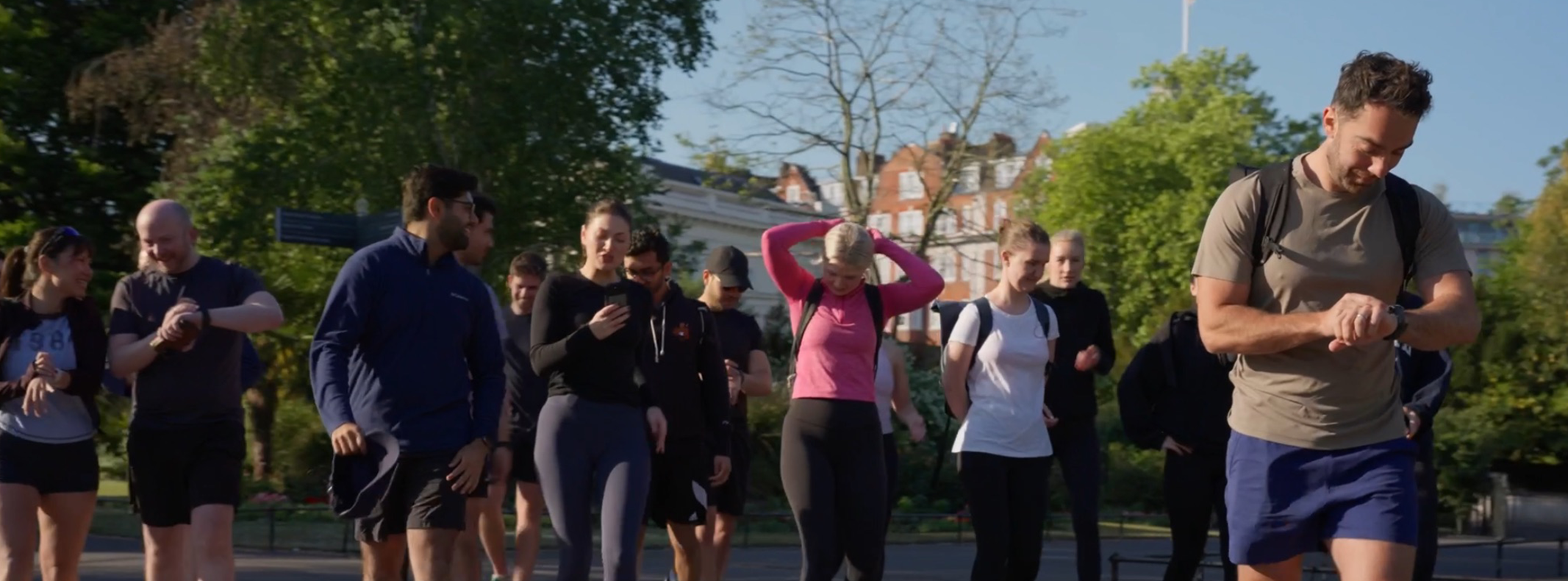In Good Company: Stories from Start-up Leaders
‘Let’s try it.’ Lessons in growth from Octopus Energy’s CFO, Stuart Jackson
Octopus Energy is one of the most remarkable UK business success stories of our time. Founded in 2015 by Greg Jackson, Stuart Jackson (no relation!) and James Eddison, in nine short years it has become a household name as the UK’s largest domestic energy supplier.
Driven by a positive, tech-focussed engagement to solve traditional consumer pain-points, Octopus Energy offers a guiding star for founders looking to make impact at a world-changing scale.
Their proprietary platform, Kraken, has revolutionised retail energy supply operations and customer experience for energy companies including e.on and EDF, it optimises the charging of 200k electric vehicles, heat pumps and air conditioning units as well as controlling 4GW of renewable generation; their investments in renewable energy run to a £6bn portfolio; they’re installing nearly 1m smart meters per year and they’ve deployed $1bn into electric vehicles. The Octopus Energy Group is also supporting governments and businesses on the journey to a green, clean energy sector.
I wanted to learn more about how it feels to lead a company through a period of such rapid growth, what it takes to successfully take on such large incumbents and how, within all that, a founder can maintain a clear vision for their business. To find out, I sat down with Stuart Jackson, Octopus Energy’s co-founder and CFO. Stuart was instrumental in steering the business through the energy crisis and turbo-charging its growth – at home and abroad.
Our conversation was wide ranging, but with a clear aim: to hit on insights, practices and principals that pioneering founders can bring to bear as they scale their businesses to meet the challenges of tomorrow.
We’d love to get to know you and how OE came to be in the form it is now.
SJ: I’d been working in a major bank for quite a long time. I’d learned huge amounts, but ultimately it’s a big, complex, heavily matrixed, quite political organisation. I ran a credit card business, which was quite big – £5bn of assets – but I didn’t control very much. Such is the way in big corporates. So, I went off in search of more entrepreneurial things. That’s when I re-met Greg, who I’d originally met many years before when we were students.
How did working in an organisation like that set you up for your entrepreneurial journey with Octopus Energy?
SJ: In different ways. Firstly, it offered a kind of inverse motivation – I didn’t want to be in that moribund incumbency place. It’s the antithesis of what we’ve done at Octopus Energy.
I did learn a lot about how to manage very large customer portfolios, which is very different to B2B relationships, for example. I learned about managing larger teams, and working in more complex environments.
I also learned about the dynamics of acquiring customers. The characteristics of customers you acquire in cards depend on where and how you acquire them – and that’s true for energy too. There’s a self-selection process.
You founded Octopus Energy nine years ago. Today, it’s the UK’s largest domestic electricity supplier. What have you learned across that extraordinary growth journey?
SJ: If you look at our original business plan, there are central themes in there that we still stand by today. They’re consumer-centric – helping consumers transition to low-carbon living as a profitable service, not some kind of government utility.
Perspectives change as the business changes, and the things I spend time on today are very different to the things I spent time on at the start. We’ve been very good at saying, ‘Let’s try it’. Quite often, trying stuff leads to outcomes you don’t expect. We’re always harvesting learning, and we try to maintain a fast feedback loop into new comms, product, operational processes and so on. I think it’s important to set out expecting to do this, knowing that some of the things you try will end up being wasted.
It’s tempting to be very tight about that, particularly as a finance guy, and say ‘This is going to be a waste of money,’ and it’s definitely hard to budget for specifically. But many of our experiments have been quite cheap: string and sellotape is the best way to get new things live and see customer responses. This way you avoid big investment or complex process builds, but still get live customer feedback on new things, quickly.
There’s real value in the stuff that you learn – even if it’s don’t do it, or do it like this, not like that. It’s so important to have enough headroom in your funding and budget to be able to try things out.
That’s a really entrepreneurial approach. How do you balance the culture needed to foster that, against maintaining a focus on growth?
SJ: They’re not mutually exclusive things. Growth is so important – more than I ever realised. People say that what matters is profitability, but when you’re an early-stage business, if you’re not growing – it’s nothing.
There’s a dynamism with growth which is so important: it’s exciting, it creates space in the team, people get elevated if they’re capable of running more and bigger things. We also found that, in consumer business, as you get bigger and your brand becomes better known, people viralise your product and offer much more effectively.
A director of our original backer, Octopus Capital built Tesco.com. He said there’s a magic number in the UK of around one million customers. That’s the level at which there’s a general awareness of you as a business, people talk about you down the pub, you start to come up organically in conversation. We found it was broadly true.
From an investment point of view, there’s a complexity around this. You have to invest harder in the early stages in order to get through to that scale – then things are easier later.
It’s definitely been true for us. But it’s not as simple as saying, ‘I need a million customers and everything’s good’. Clearly there have to be some fundamentals in place to get to that.
What have you learned about your strengths as a leader?
SJ: I make the effort to figure out how things are working in detail if needed to help resolve challenges, but without taking an eye off the big picture.
I think being able to do both is so important. You hear people say, ‘Sweat the big stuff!’ That’s probably right – I’ve learned not to be overly obsessive on the small stuff – but the small stuff really matters.
There’s an important principle here: really understanding how things work and not accepting the received wisdom is a basis for challenging norms and building meaningful differentiation with good economic fundamentals – or at least getting sight to them. I think often we’ve been successful because we’ve started from a consumer perspective and built out from there, and only then taking the time to figure out the economic model once we have some real data and proper insight into behaviours and economic dynamics.
Sometimes where things that we’re developing are driving evolution of the market, we run into territory that was never conceived of during the development of regulation. It’s why having that fundamental understanding of how things work and the underlying consumer behaviours is super important as we participate in shaping markets of the future.
I have always stayed well connected to what is happening in our markets; pricing strategies of different competitors, or what they are doing and the impact of that on our KPIs. That is part of our feedback loop, as well.
I always look for that in management teams in all the markets we’re operating in. I want them to really understand their market to see who’s playing, and know how to compete against them. Obsessing over detail – and being able to abstract from it – really matters.
Of course, as a founder/CFO you might be biased – but is it worth having someone in your role in place early?
SJ: I think investors find it reassuring to have someone thinking about and managing risk, control and financial performance in detail as a trusted – and commercial – foil to a hard driving, innovative founder, however economically literate they are. But I say this advisedly… start ups need to be dynamic and thirsting for insight and premature structure and process will stifle progress.
I’ve always been very financially literate, I’ve spent my whole career in very financially orientated spaces. But I’m not an accountant. We hired a qualified accountant pretty early, and that was super important. There’s a language and structures and controls that come with being trained as an accountant, and they’re important.
Unless you’ve gone through that training process and had those grooves carved in your head, it’s quite hard to do it well. You need them to build those structures and early on – or it’ll come back to bite you later.
In the second part of Stuart’s interview, we explored some of the people and talent challenges faced by businesses undergoing rapid growth. From maintaining great relationships within the leadership team, to the value of storytelling and the inside track on Octopus Energy’s decision not to build an HR team, part two is packed with valuable insights for a founder steering a business through its growth cycle.













